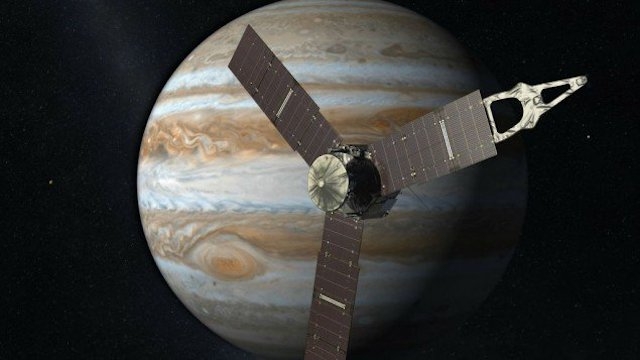A spacecraft headed towards Jupiter for an exploratory mission is packed with Israeli research tools developed by Israeli scientists from the famed Weizmann Institute. "We have participated in international space missions in the past," said Professor Yohai Caspi, from the Department of Earth and Planetary Sciences at the Weizmann Institute, who leads the Israeli JUICE team and is staying at the launch site; "But the fact that this mission has an entire section that is completely Israeli adds to the research this time special significance."
Prof. Caspi, and his research partner Dr. Eli Galanti, began working on the project as early as 2013, with the European Space Agency's announcement of the mission. “The close cooperation we created between industry and academia made it possible for it to happen. Now, we have the most accurate device of its kind in the world. In fact, this is also the first device made in Israel that goes outside the system of the Earth and the Moon."
European Space Agency (@esa) to launch spacecraft with Israeli tech on historic #Jupiter mission, in @ynetnews https://t.co/7fh5Iq8r4k #Space #SpaceExploration #Israel
— Middle East Space Monitor (@MidEast_Space) April 3, 2023
"The Israel Space Agency is proud to take part in a flagship mission of the European Space Agency, both in the engineering-technological aspect and in the research aspect. I have no doubt that the research carried out at the Weizmann Institute will be a central component of the mission's research program, and will continue to advance the field of space research in the State of Israel to the forefront of the world", said Uri Oron, Director of the Israel Space Agency in the Ministry of Innovation, Science, and Technology.
During its stay around Jupiter, the spacecraft going by the name “JUICE” will circle the planet almost 100 times. During each rotation, the oscillator will measure tiny changes in the frequency of a radio beam that will be sent from the spacecraft, through Jupiter's atmosphere, to Earth. The Weizmann Institute of Science said that in this way, a temperature profile of a certain point on the surface of the planet will be obtained every time, and the scientists will be able to gradually assemble a three-dimensional map of the atmosphere which will make it possible to improve the understanding of the structure and composition of the largest planet in the solar system.
Coming up next week!
— Israel Space Agency 🇮🇱 (@ILSpaceAgency) April 4, 2023
On the 13.4 Thursday at 15:15 IL Time, @esa will launch the JUICE spacecraft to planet Jupiter on a historic mission, with technologies and scientific research funded by the Israel Space Agency in @most_il pic.twitter.com/TNEF2GMDFm
The Weizmann Institute of Science emphasized that even though JUICE's journey is starting now, it will be years before the long-awaited answers to these questions begin to be received. Prof. Caspi's group will indeed use the waiting time to continue planning the experiments and improve the dynamic mapping capabilities of the atmosphere, but it is also difficult for them not to be excited by the launch itself. "It's not every day that hundreds of thousands of work hours are drained into a single event," says Prof. Caspi.


